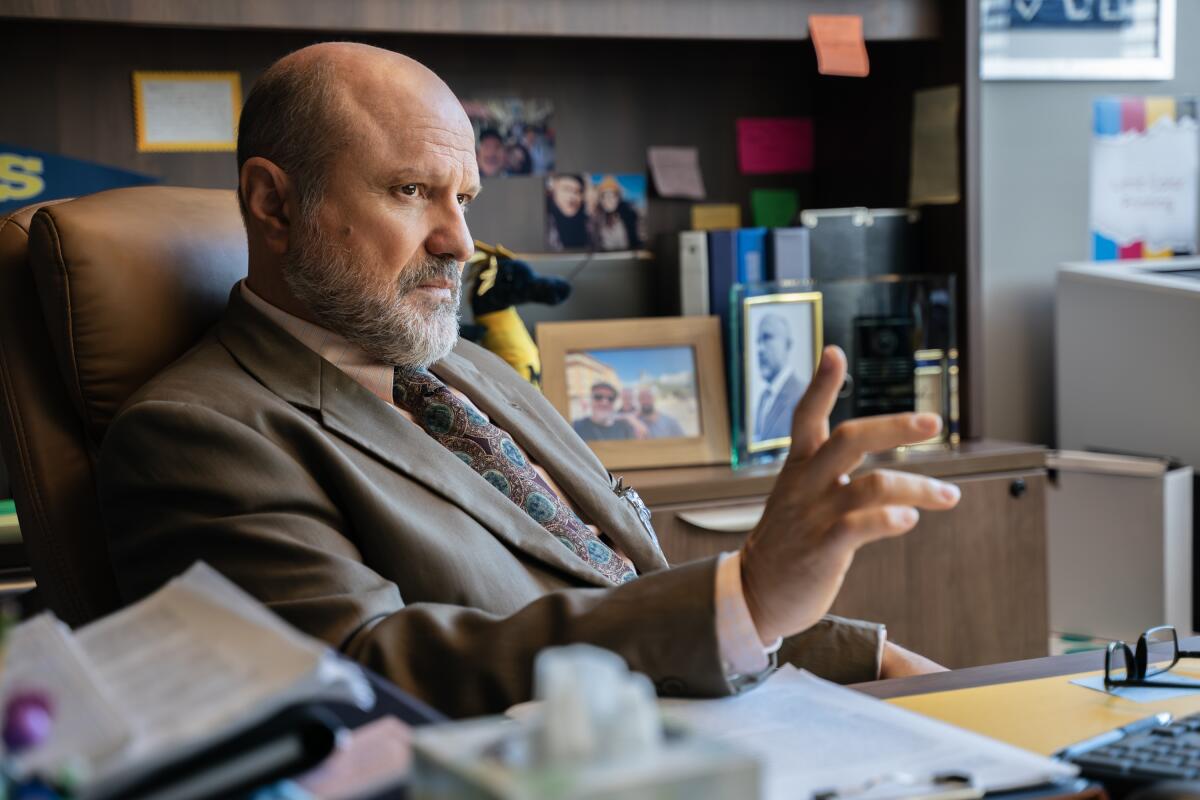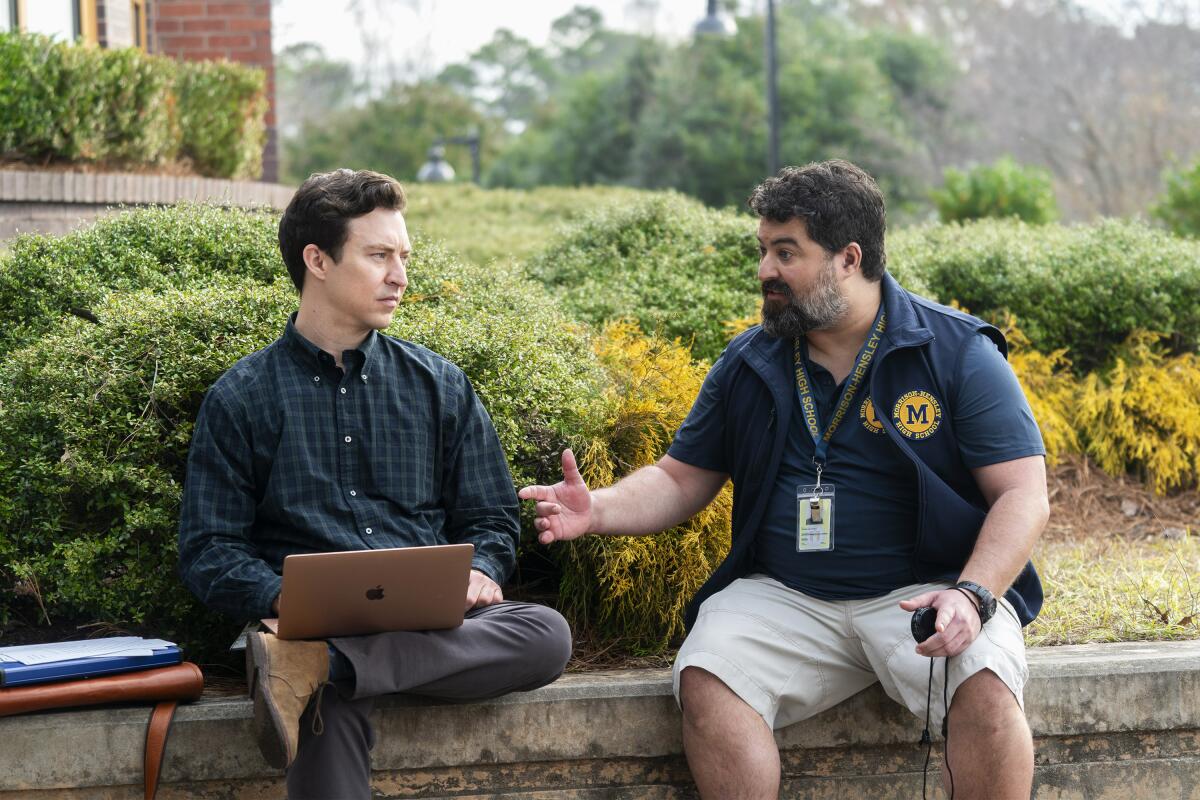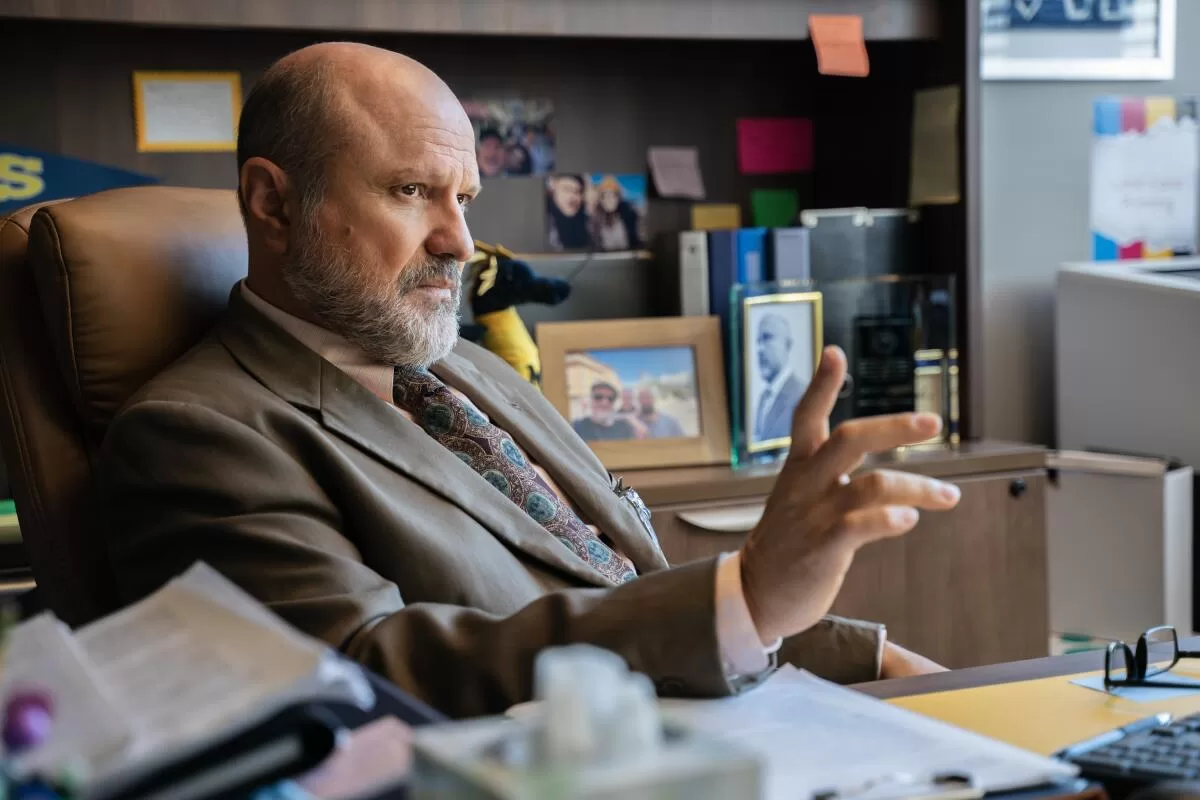There have been shows about teachers in every era of television, going back to “Our Miss Brooks” and not even including all the many series about teenagers in which teachers have played small or larger parts. Here in the third decade of the 21st century, the Emmy-winning “Abbott Elementary,” which has almost single-handedly reminded media critics that broadcast television is still a thing, carries that torch; in the bargain, it’s taken a profession often portrayed as synonymous with “losers” and restored its dignity, with no injury to the comedy.
Now we have “English Teacher,” created by and starring Brian Jordan Alvarez and premiering Monday on FX and streaming from Hulu on Tuesday, set not in a cash-strapped inner-city grade school but a flush suburban high in Austin, Texas. Jonathan Krisel, the third creative partner in “Portlandia” alongside Fred Armisen and Carrie Brownstein, directs several episodes; but unlike that series, Austin has nothing to do with the show, other than one comment that there are tech jobs to be had.
Alvarez plays Evan Marquez, the eponymous English teacher, who is dedicated to his job but has a tendency to overthink himself into a frenzy; this can play havoc with his personal life, but it also fuels his righteous idealism. He’s accompanied here by a few representative colleagues: history teacher and best friend Gwen (Stephanie Koenig), whose unemployed husband is digging a swimming pool by hand; Markie (Sean Patton), a human buffalo with a sociologist’s understanding of teen culture; guidance counselor Rick (Carmen Christopher), who doesn’t seem to guide much of anything at all; and principal Grant Moretti (Enrico Colantoni), who wants no trouble from inside or outside the school.

Enrico Colantoni plays Grant Moretti, the high school principal, in “English Teacher.”
(Richard Ducree / FX)
Evan’s ex-boyfriend Malcolm (Jordan Firstman), with whom he still ends up in bed, was formerly a colleague, while new teacher Harry (Langston Kerman) is a fresh romantic possibility, in Evan’s mind anyway — though one that fills him with farcical dread, as he’s been forbidden to date co-workers after kissing Malcolm in front of an student. Or, rather, after the student’s mother complains about it, years after the fact.
Where in some series Evan being gay would be incidental, here it’s integral to the stories and comedy. Preparing for the traditional powderpuff game, in which cheerleaders play football and football players dress as cheerleaders, the players come to Evan for advice; he enlists the help of a college friend who works as a drag queen, whom he introduces as the star of a “long-running show in Austin called ‘Woman of La Mancha.’” (“It actually got canceled,” says the friend. “The show is now called ‘Drink Ticket Tuesday.’”)
And when some of Markie’s students begin to ask about the term “nonbinary,” he asks Evan to explain it to them, as a “very special gay guest.”
Markie: “Hey, Froot Loops!”
Evan: “You can’t call me ‘Froot Loops,’ Markie.”
“It’s just the name of a cereal, buddy.”
“Then why didn’t you say Cheerios?”
“’Cause there ain’t nothing gay about Cheerios.”

Evan (Brian Jordan Alvarez), left, and Markie (Sean Patton) have an adversarial relationship in the series.
(Tina Rowden / FX)
As to the students, they’re a collection of personalities — I almost wrote “types,” but they’re written as individuals, and each actor brings an original spin to their part — who treat their elders with an attitude somewhere between respect and pity. When Evan announces they’ll be studying “Love in the Time of Cholera,” a student named Kayla pipes up.
Kayla: “It’s actually super triggering for me to be reading a book about a disease right now with everything I’m going through?”
Evan: “What are you going through, Kayla?”
Kayla: “Recently I was successfully diagnosed with something called asymptomatic Tourette’s.”
Evan: “Someone actually diagnosed you?”
Chelsea, Kayla’s friend: “It’s disrespectful to ask that.”
Kayla, to Chelsea: “You can’t blame people for making really huge mistakes when they haven’t learned the etiquette.” To Evan: “It’s only self-diagnosable.”
I don’t have much to offer in the way of critical analysis, or picked nits. I loved the characters, major and minor, and how their eccentricities sit in a bed of naturalism. I liked the unexpected incursions of slapstick. (I will never not laugh at a ball flying in from nowhere to hit a person in the head.) An exhausted Colantoni dropping a couple of Alka-Seltzers in a glass, pressing the glass to his cheek and softly saying, “Purr,” felt like the year’s greatest inspiration. A waiter sitting down at a table and saying out of nowhere, “I literally have COVID” — that’s my kind of non sequitur.
What makes something funny? We know it when we see it, though, of course, not everybody will see what we see. One might even say we know it after we see it, when we become aware of having laughed, chuckled, nodded appreciatively. I did that a lot in the course of “English Teacher.”
But what elevates the series is a sweetness that connects the characters, and a sense amid the sitcom situations of people, young and old, grasping toward something meaningful, and sometimes coming together in what resembles a solution, a step forward. (I teared up at the powderpuff episode, written by Koenig and directed by Alvarez.) This is a comedy where all that ends, ends well.
